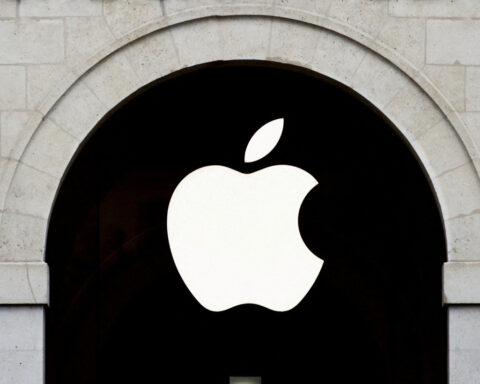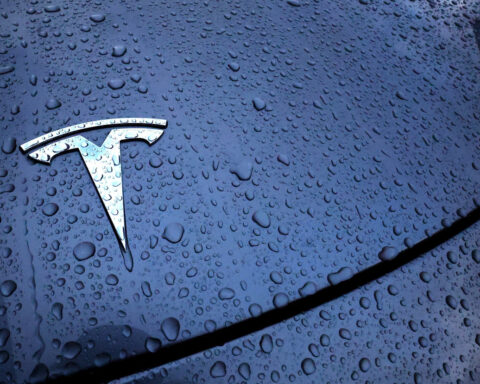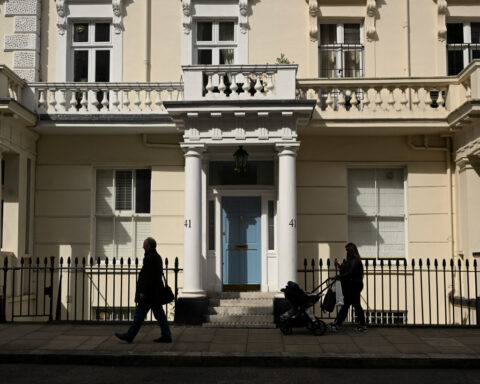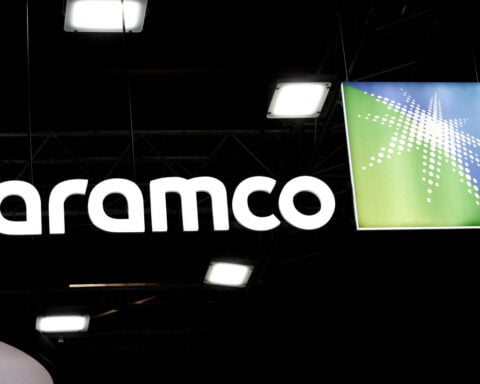By Lucia Mutikani
WASHINGTON (Reuters) - U.S. consumer confidence unexpectedly improved in May after deteriorating for three straight months amid optimism about the labor market, but worries about inflation persisted and many households expected higher interest rates over the next year.
The mixed survey from the Conference Board on Tuesday also showed more consumers believed that the economy could slip into recession in the next 12 months. Nonetheless, consumers were very upbeat about the stock market and more planned to buy major household appliances over the next six months.
While the economy is expected to slow this year as a result of the cumulative impact of 525 basis points worth of interest rate hikes from the Federal Reserve since March 2022 to tame inflation, economists and most business executives are not forecasting a downturn.
"Continued positive job growth, rising wages, an ebullient stock market and healthy household balance sheets will keep consumers spending despite elevated prices and borrowing costs," said Oren Klachkin, financial market economist at Nationwide.
The Conference Board said that its consumer confidence index increased to 102.0 this month from an upwardly revised 97.5 in April. Economists polled by Reuters had forecast the index slipping to 95.9 from the previously reported 97.0. It outperformed the University of Michigan's sentiment index.
Confidence remains within the relatively narrow range it has been hovering in for more than two years.
The improvement was across all age groups, with consumers making annual incomes over $100,000 posting the largest increase in confidence. On a six-month moving average basis, confidence remained highest among the under-35 age cohort and those with annual incomes of more than $100,000.
Consumers' perceptions of the labor market also improved, with the survey's so-called labor market differential, derived from data on respondents' views on whether jobs are plentiful or hard to get, widening to 24 from 22.9 in April, though opportunities are probably not as abundant as in the past year.
"The level of this measure remains elevated by historical standards and points to a still strong labor market," said Michael Hanson, an economist at JPMorgan.
The measure closely correlates to the unemployment rate in the Labor Department's employment report. Labor market resilience, mostly characterized by historically low layoffs, is underpinning the economic expansion. Consumers' 12-month inflation expectations rose to 5.4% from 5.3% in April.
"Consumers cited prices, especially for food and groceries, as having the greatest impact on their view of the U.S. economy," said Dana Peterson, chief economist at the Conference Board. "Perhaps as a consequence, the share of consumers expecting higher interest rates over the year ahead also rose, from 55.2% to 56.2%."
About 48.2% of consumers in the survey expect stock prices to increase over the coming year, compared to 25.4% anticipating a decrease.
Stocks on Wall Street were trading higher, with the technology-heavy Nasdaq index breaching the 17,000 level for the first time. The dollar fell against a basket of currencies. U.S. Treasury prices were lower.
HOUSE PRICE GAINS SLOW
Consumers' inflation and interest rate views were likely colored by a surge in price pressures in the first quarter. That, together with still-solid economic growth, has prompted financial markets to push back expectations for the first rate cut from the U.S. central bank to September from June. The Fed has kept its policy rate in the 5.25%-5.50% range since July.
Consumers' perceived likelihood of a recession over the next year rose for the second consecutive month. Despite concerns about higher prices and an economic downturn, consumers are not planning to cut back on spending in a significant way.
The survey's measure of buying plans for major appliances over the next six months rose to 49.4 from 43.0 in April, driven by television sets, refrigerators, vacuum cleaners and clothes dryers.
Buying plans for motor vehicles were unchanged while those for houses dropped amid higher mortgage rates and elevated home prices. On a six-month moving average basis, purchasing plans for homes were unchanged in May at their lowest level since August 2012.
A separate report from the Federal Housing Finance Agency on Tuesday showed house prices increased 6.7% in March on a year-on-year basis after advancing 7.1% in February.
Prices are being driven by a shortage of homes available for sale, and housing costs have been the major driver of inflation.
Though supply is gradually improving, it remains well below pre-pandemic levels.
"We expect home price growth to remain positive in the quarters ahead, with risks skewed to the upside," said Bernard Yaros, lead U.S. economist at Oxford Economics.
"Scarce supply in the resale market, a sturdy labor market, and pent-up demand from Millennials aging into their prime household-formation years argue for potentially firmer house price gains than in our baseline forecast."
(Reporting by Lucia Mutikani; Editing by Chizu Nomiyama and Andrea Ricci)

 Trump has begun another trade war. Here's a timeline of how we got here
Trump has begun another trade war. Here's a timeline of how we got here
 Canada's leader laments lost friendship with US in town that sheltered stranded Americans after 9/11
Canada's leader laments lost friendship with US in town that sheltered stranded Americans after 9/11
 Chinese EV giant BYD's fourth-quarter profit leaps 73%
Chinese EV giant BYD's fourth-quarter profit leaps 73%
 You're an American in another land? Prepare to talk about the why and how of Trump 2.0
You're an American in another land? Prepare to talk about the why and how of Trump 2.0
 Chalk talk: Star power, top teams and No. 5 seeds headline the women's March Madness Sweet 16
Chalk talk: Star power, top teams and No. 5 seeds headline the women's March Madness Sweet 16
 Purdue returns to Sweet 16 with 76-62 win over McNeese in March Madness
Purdue returns to Sweet 16 with 76-62 win over McNeese in March Madness








